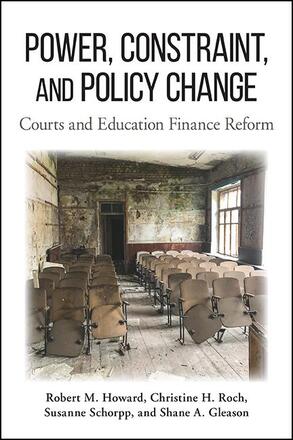
Power, Constraint, and Policy Change
Courts and Education Finance Reform
Alternative formats available from:
Examines how state courts change public policy through an analysis of their influence on state education finance reform.
Description
Power, Constraint, and Policy Change analyzes state court influence on state education finance reform. Beginning in the early 1970s litigants began filing suits in state courts to change state education funding in order to prevent disparities in education resources between wealthy and poor communities. These cases represent a fundamental policy debate in American society, pitting the importance of education against the cost and method of funding it. Through education finance, the authors explore how and why courts often end up determining and resolving policy funding debates. Education funding has involved both the federal constitution and state constitutions, as well as legislation and court-mandated remedies, which, ultimately, determine who and how we pay for this critical American value.
Robert M. Howard is Professor of Political Science at Georgia State University. He is the author of several books, including Getting a Poor Return: Courts, Justice, and Taxes, also published by SUNY Press. Also at Georgia State University, Christine H. Roch is Professor of Public Management and Policy. Susanne Schorpp is Research Fellow in the School of Humanities and Social Sciences at La Trobe University, Australia. Shane A. Gleason is Assistant Professor of Political Science at Texas A&M University–Corpus Christi.